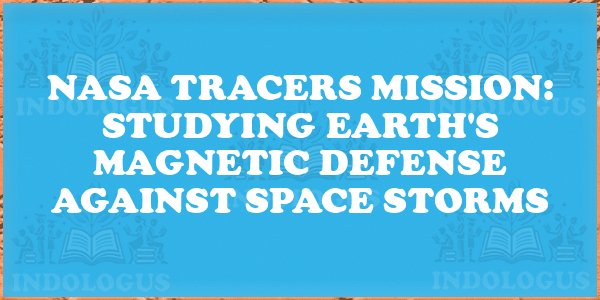NASA’s TRACERS mission aims to understand how Earth’s magnetic field protects against space weather, ensuring the safety of critical infrastructure on Earth and in space.
Background
NASA launched the TRACERS mission (Tandem Reconnection and Cusp Electrodynamics Reconnaissance Satellites) to study how Earth’s magnetic field shields the planet from solar storms and space weather. The mission focuses on magnetic reconnection, where the Sun’s magnetic field interacts with Earth’s shield, impacting satellites, power grids, and communications.
Objectives
- Study magnetic reconnection and energy transfer in the polar cusp region
- Understand how solar particles affect Earth’s upper atmosphere and crucial systems
Key Features
- Two satellites flying closely together
- Over 3,000 measurements within a year
- Real-time monitoring of solar energy impacts
- Investigating space weather effects on communication systems, GPS, and electric grids
Additional Payloads
- Athena EPIC: Focuses on reducing satellite costs and studying Earth’s radiation
- PExT: Demonstrates a new signal system for satellite communication
- REAL: A CubeSat studying harmful electron escape from the Van Allen belts
Global and Indian Significance
Understanding space weather is crucial for countries like India, heavily reliant on satellite-based systems for navigation, communication, and weather forecasting. TRACERS will help mitigate risks posed by solar storms to ISRO missions, national infrastructure, and space exploration.
Collaborations
The TRACERS mission, led by David Miles from the University of Iowa, involves partners like NASA Goddard Space Centre, UCLA, UC Berkeley, and Southwest Research Institute. Collaborations also include the U.S. Space Force, Dartmouth College, and Montana State University.
Key Takeaways for Competitive Exams
- NASA’s TRACERS mission studies Earth’s magnetic field defense against space weather
- Focuses on magnetic reconnection in the polar cusp region
- Impacts satellite systems, power grids, and communications
- Global significance for countries like India dependent on satellite technology
- Collaborations with various institutions and agencies for space research



